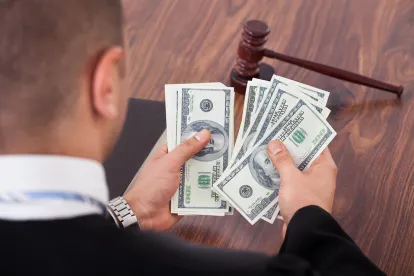Nearly all attorneys and most lay people recognize that a judgment is no guarantee of payment. A plaintiff may obtain a judgment and the defendant may never willingly pay a dime. Rather, the plaintiff, now a judgment creditor, must collect payment on the judgment against the defendant, now a judgment debtor, through the various mechanisms provided for in its respective state.
In Illinois, a judgment creditor is entitled to pursue a wide array of collection procedures, also known as supplementary proceedings. These proceedings include wage garnishments, bank deductions, motions for turnover of assets and the all-mighty citation to discover assets on the judgment debtor or any third party who may hold assets of the judgment debtor. Most litigators are familiar with these various types of collection mechanisms.
However, even experienced practitioners may underestimate the broad authority provided to Illinois courts to determine the rights and interests of not only the parties to a judgment, but any and all (non-party) interested third parties. Such underestimation can lead to costly and sometimes fruitless litigation.
To this point, Illinois courts have jurisdiction to hear claims by third parties during supplementary proceedings initiated by a judgment creditor against a judgment debtor and the court has authority to enter orders directing property to the third party, not just the judgment creditor. This is so even if the third party has not reduced its claim to a judgment and/or did not initiate supplementary proceedings of its own. Further, the third party need not be related to the underlying suit or judgment.
So long as the third party has an interest in property which is made subject to a post-judgment supplementary proceeding (such as during a citation to discover assets which touches almost all assets of a judgment debtor), may that third party appear and assert its interest. Furthermore, the third party may receive the benefits of a court order directing turnover of assets in its favor upon satisfactory proof to the court.
To the unwitting judgment creditor, this may feel like going through the process of complaint filing, discovery and a lengthy motion for summary judgment, only for the court to direct a judgment against your defendant but in favor of a third party who appeared at the eve of the motion hearing.
However, the court’s jurisdiction and authority to enter such orders is made clear by statute and rule for good reason. A single court can consider all interested parties’ interests and can address the practical and legal implications of turnover of property affecting those interests with all the parties (and nonparties) at the table. Ultimately, those interests may be protected and made clear by court order for crystallization of a party’s interests and clarity of record.
To be clear, only an interested party with a superior interest in the property subject to supplementary proceedings may be entitled to such an order and a judgment creditor should never seek turnover of assets that do not ultimately belong to the judgment debtor. However, when embarking on proceedings to collect a judgment, it is important to consider the various types of third parties that may appear and which may not always be obvious (e.g., an assignee or beneficiary of interests). As can be learned the hard way, litigating against a once-unknown, motivated interested third party may prove more costly than litigating against a known, wholly adverse judgment debtor.




 />i
/>i

